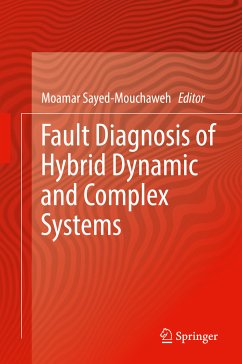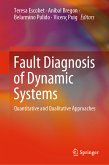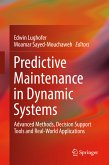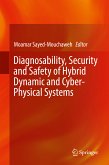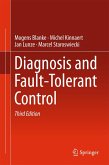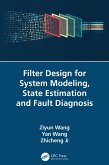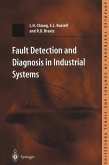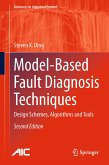Online fault diagnosis is crucial to ensure safe operation of complex dynamic systems in spite of faults affecting the system behaviors. Consequences of the occurrence of faults can be severe and result in human casualties, environmentally harmful emissions, high repair costs, and economical losses caused by unexpected stops in production lines. The majority of real systems are hybrid dynamic systems (HDS). In HDS, the dynamical behaviors evolve continuously with time according to the discrete mode (configuration) in which the system is. Consequently, fault diagnosis approaches must take into account both discrete and continuous dynamics as well as the interactions between them in order to perform correct fault diagnosis. This book presents recent and advanced approaches and techniques that address the complex problem of fault diagnosis of hybrid dynamic and complex systems using different model-based and data-driven approaches in different application domains (inductor motors, chemical process formed by tanks, reactors and valves, ignition engine, sewer networks, mobile robots, planetary rover prototype etc.). These approaches cover the different aspects of performing single/multiple online/offline parametric/discrete abrupt/tear and wear fault diagnosis in incremental/non-incremental manner, using different modeling tools (hybrid automata, hybrid Petri nets, hybrid bond graphs, extended Kalman filter etc.) for different classes of hybrid dynamic and complex systems.
- Synthesizes the state of the art in the domain of fault diagnosis of hybrid dynamic systems;
- Studies the complementarities and the links between the different methods and techniques of fault diagnosis of hybrid dynamic systems;
- Includes the required notions, definitions and background to understand the problem of fault diagnosis of hybrid dynamic systems and how to solve it;
- Uses multiple examples in order to facilitate the understanding of the presented methods.
Dieser Download kann aus rechtlichen Gründen nur mit Rechnungsadresse in A, B, BG, CY, CZ, D, DK, EW, E, FIN, F, GR, HR, H, IRL, I, LT, L, LR, M, NL, PL, P, R, S, SLO, SK ausgeliefert werden.
Hinweis: Dieser Artikel kann nur an eine deutsche Lieferadresse ausgeliefert werden.

